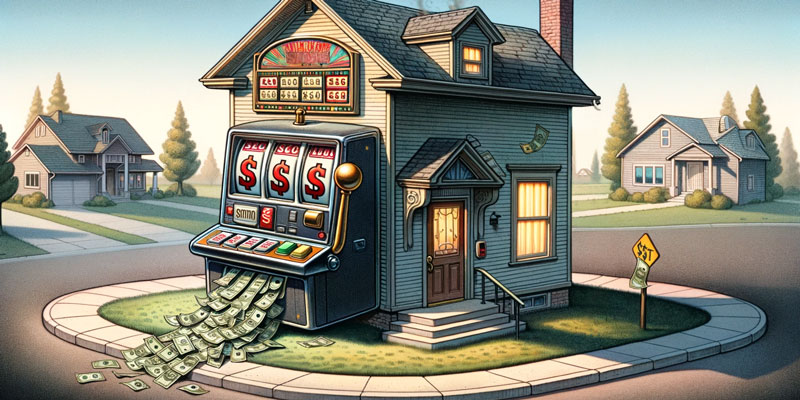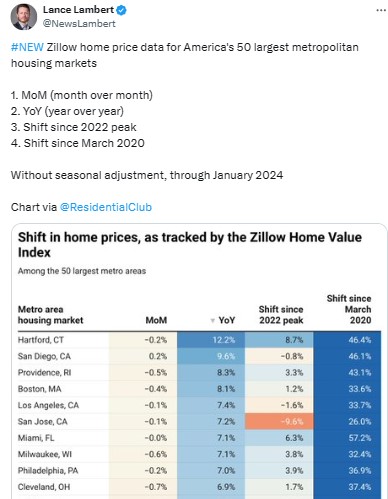
We react to increases in housing prices in exactly the wrong way.
Lance Lambert, who appears to be a reporter on the housing beat, shared a table of increases in housing prices in the 50 largest metro areas. As the following snip from the table shows, Providence experienced the third-largest increase over the past year:
Various contextual points are important to remember. Metros can vary in size, nature, and density, which will affect increases in growth, and the baseline from which the growth occurred matters. Nonetheless, it will surprise nobody in the Ocean State that housing is expensive and getting more so.
In any event, this is the point at which various political factions begin declaring that the numbers support their priors. Ruling-class partisans claim it’s evidence things can’t be so bad in Rhode Island if people are bidding up the price to live here. Progressives insist it shows how much more help the government must provide. Conservatives, like me, remind everybody of the effects of heavy-handed government.
Obviously, I think my own view is correct, but another principle may be more important to emphasize, these days: The place to start considering the matter is with acceptance. Prices are going up. That’s the value of real estate, and we have to deal with it. Something is causing the change, and it might be good, bad, or mixed, but it’s a fact.
From there, we should recognize that our actions will also have an effect. Here’s where the big-government progressives could really use some time for thought. When the price of something goes up, giving people money to pay for it will increase demand, which will push prices up even more.
Whether the increasing home values are a positive or negative sign, overall, they surely make life more difficult for families who can’t keep up, but we don’t help those families by continuing to put upward pressure on the market. You know who that does help? People who already own property, particularly if the property is on the more-valuable side. Attempting to address this reality with wealth redistribution will compound the unintended consequences and squeeze those who are neither rich nor poor.
Answers aren’t easy, but they have to be realistic. We could simply accept the facts and watch as prices go up for goods and services so workers can afford the living expenses or so it’s worth their while to travel from far away. More actively, we could open up the economy so workers’ salaries can adjust more quickly. We could also ease up on new construction restrictions and zoning rules for existing houses.
There are any number of less-direct and/or more-invasive approaches, too, but we have to start with awareness that direct subsidies won’t help. Unfortunately, Rhode Island’s civic society doesn’t seem interested in having these conversations or educating itself or the population at large.
Featured image by Justin Katz using Dall-E 3 and Photoshop AI.

